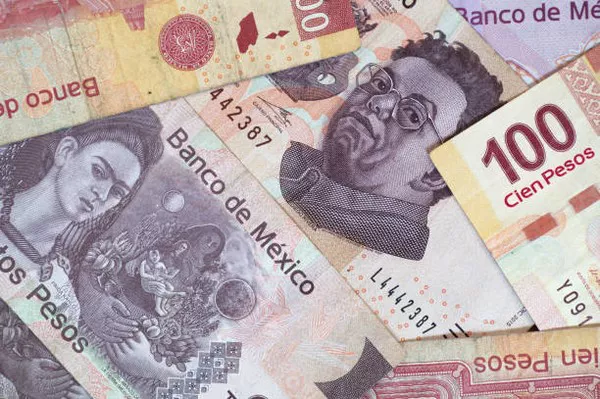The Mexican Peso’s fluctuating value on the global stage is a topic that significantly influences various sectors of the Mexican economy. Among those most affected are small businesses, which form the backbone of the nation’s economic landscape. In this article, we delve into the intricate dynamics surrounding Mexican Peso devaluations and explore the nuanced effects they impose on small businesses operating within this dynamic economic environment.
Understanding Peso Devaluations:
A devaluation of the Mexican Peso occurs when the currency loses value against other major currencies, most notably the U.S. Dollar. This can happen for various reasons, including economic uncertainties, inflation, changes in interest rates, or global economic trends. While devaluations may offer short-term benefits for exports, they pose challenges for small businesses in various aspects of their operations.
Import Costs and Inflation:
Small businesses that rely on imported goods or raw materials face immediate challenges when the Peso devalues. The cost of imports rises, impacting profit margins and potentially leading to increased prices for consumers. Inflationary pressures resulting from devaluations can affect overall consumer purchasing power, influencing small businesses’ pricing strategies and sales volumes.
Foreign Debt Burden:
Small businesses with foreign debt obligations may find themselves facing increased repayment burdens during Peso devaluations. If a company has borrowed in a foreign currency, such as U.S. Dollars, the devaluation of the Peso can elevate the cost of repaying those loans. This scenario can strain the financial resources of small businesses, particularly those with limited capital reserves.
Impact on Operating Expenses:
Small businesses often operate on tight budgets, and Peso devaluations can contribute to increased operating expenses. Costs related to utilities, rent, and employee wages, which are often priced in local currency, may rise as inflation takes hold. Small businesses may need to carefully manage their cost structures and explore strategies to mitigate the impact on their bottom line.
Competitive Challenges:
For small businesses engaged in international trade, a devalued Peso can affect their competitiveness in the global market. While exports may become more attractive due to lower prices in foreign currencies, small businesses that rely on imported components may face challenges. Maintaining competitiveness amid currency fluctuations requires strategic planning and adaptability.
Consumer Confidence and Spending Habits:
Currency devaluations can influence consumer confidence and spending habits. When the Peso weakens, consumers may become more cautious about discretionary spending, impacting businesses in sectors such as retail, hospitality, and services. Small businesses need to anticipate shifts in consumer behavior and tailor their marketing and sales strategies accordingly.
Strategies for Small Businesses to Navigate Peso Devaluations:
Risk Management and Hedging:
Small businesses exposed to currency fluctuations can explore risk management strategies and hedging techniques. While not foolproof, these approaches can help mitigate the impact of Peso devaluations. Engaging with financial experts and exploring derivative instruments can provide small businesses with tools to manage currency risk.
Diversification of Revenue Streams:
Small businesses overly reliant on a single market or currency may face heightened vulnerabilities during Peso devaluations. Diversifying revenue streams by exploring new markets, developing innovative products, or expanding service offerings can enhance resilience. A diversified business model can help offset losses in one area with gains in others.
Reviewing and Renegotiating Contracts:
Small businesses with foreign suppliers or partners may find it beneficial to review and renegotiate existing contracts during periods of Peso devaluation. Negotiating favorable terms, including fixed pricing or renegotiated payment schedules, can help stabilize costs and improve financial predictability.
Streamlining Operational Efficiency:
Enhancing operational efficiency becomes crucial for small businesses facing increased costs due to Peso devaluations. Streamlining processes, optimizing supply chains, and adopting cost-effective technologies can contribute to reducing overall operational expenses. Implementing efficiency measures allows small businesses to maintain competitiveness despite economic uncertainties.
Market Research and Consumer Insights:
Understanding the evolving needs and preferences of consumers during economic fluctuations is essential for small businesses. Investing in market research and consumer insights helps tailor products, services, and marketing strategies to align with changing consumer behaviors. Adapting to market dynamics ensures small businesses remain relevant and responsive to customer needs.
Financial Planning and Contingency Measures:
Developing robust financial plans and contingency measures is paramount for small businesses navigating the challenges of Peso devaluations. Establishing contingency funds, reviewing cash flow projections, and stress-testing financial models can provide a buffer against unforeseen economic shocks. A proactive approach to financial planning enhances a small business’s ability to weather economic uncertainties.
Engagement with Financial Institutions:
Small businesses should maintain open communication with financial institutions, including banks and credit providers. Establishing strong relationships with these entities can lead to tailored financial solutions, access to credit facilities, and advice on navigating currency risks. Financial institutions can offer guidance on managing cash flow, debt obligations, and investment decisions during Peso devaluations.
Conclusion:
The impact of Mexican Peso devaluations on small businesses is multifaceted, requiring a comprehensive approach to navigate the challenges effectively. Small businesses must proactively assess their exposure to currency risks, implement risk management strategies, and adopt measures to enhance overall resilience.
By embracing adaptability, diversification, and efficient operational practices, small businesses can not only weather the storms of Peso devaluations but also position themselves for sustainable growth. As the economic landscape evolves, small businesses that remain agile and strategic in their approach will be better equipped to thrive in the face of currency fluctuations and contribute to the resilience of the broader Mexican economy.


